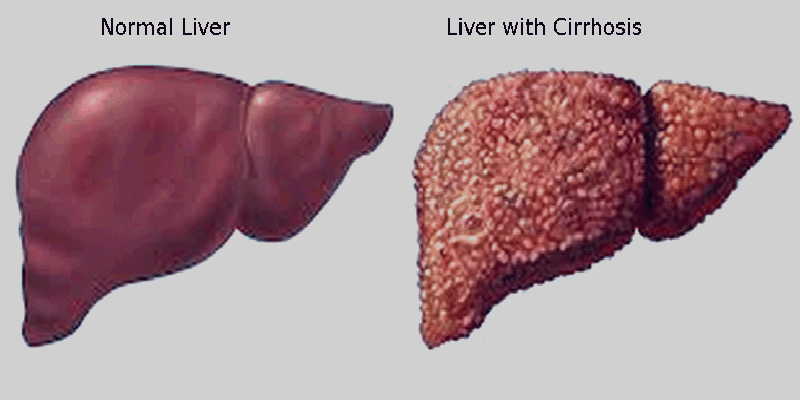Health
Hepatitis B hits epidemic proportions with more than 3.5m Ugandans infected
Hepatitis B, a disease that attacks the liver, causing cirrhosis (scarring of the organ) and cancer in later stages is spreading rapidly in Uganda.
As Ugandans join the global community to commemorate July 28 World Hepatitis Day today, health advocates are raising alarm about what they call worrying rates of spread amid inadequate efforts by government and other players in the industry to address the problem.
Prevalence
In Uganda, different studies have estimated the rate of prevalence of Chronic Hepatitis B to be between 8-15 percent of the population. And the World Health Organization (WHO) says that since 2000, prevalence of Hepatitis B has risen by 22% in Sub Saharan Africa.
A 2009 national serosurvey by Makerere Medical School (Josephine Bwogi et al) revealed that the disease was highly endemic but occurring mostly among children, among the poor in northern parts of the country, and among HIV+ patients.
Mode of Transmission
Hepatitis B and C are blood-borne infections, (transmitted through blood contact) with significant transmission of hepatitis B occurring in early life. Sexual transmission of Hepatitis B happens less commonly, according to WHO.
Sadly, it appears, many of the victims or even the potential victims of the disease are not aware of it, especially how it spreads, its causes and effects; making it a silent killer.
WHO also says that Diagnosis of the disease is problematic, as chronic hepatitis infections can cause no symptoms and remain silent for decades. This means that many people remain unaware of their infection and do not seek treatment until the disease has progressed to severe – often irreversible – liver damage
Fortunately also, Hepatitis B is treatable and can be prevented through vaccination.
Kenneth Kabagambe, the Executive Director of National Organization for People Living with Hepatitis B (NOPLHB), who says is a survivor of Hepatitis B says:
“There is no national program aimed at creating awareness in the entire country on this disease which has become a silent killer, the present immunization programs have only been carried out in only areas with high prevalence.
According to The Cancer Institute at the National Referral Hospital in Mulago, Kampala, Hepatitis B is of the major causes of liver cancer.
Kabagambe argues that the high prevalence rates of Hepatitis B necessitate serious efforts to treat and screen the affected individuals not only as a way of saving them but also as a way of preventing further spread.
“I wish say that high prevalence rates don’t need vaccinations but rather treatment, and scaling up screening so as to I identify the sick and get them enrolled for medical care. Then the low prevalence area would have these vaccination programs since they are in big number and much protection needed by them. But the government has ignored all these,”
According to Dr. Jacinto Amandua, the Commissioner of Clinical Services in the Ministry of Health, Hepatitis B is ten times more deadly than HIV/AIDS and Uganda is one of the countries in the world with the highest rates of prevalence.
Karamoja hard-hit
Amandua notes that Karamoja region in norther eastern horn of the country, the disease prevalence is as high as 23-25%.
Northern Uganda and Greater Acholi region follows with 20%, Eastern Uganda is at 18.5% and western 10%.
But individual studies that have been done by professor Possiano Ocama from Makerere college of health science and Uganda Gastroenterology Society (UGES) some districts in western Uganda like Kiruhura and Lyantonde, up 30% of people have hepatitis B.
Kabagambe who lost a close friend to Hepatitis B and also narrowly survived the disease, also blames the spread of Hepatitis B on a lack of attention from authorities, as compared to other diseases like HIV.
“HIV has gotten a lot of backup stages. If someone tests positive with HIV immediately, he/she is enrolled on treatment program which happens in every public health center unlike the treatment program of Hepatitis B. Up to now there are no clear drug systems for Hepatitis B.
Many people have died not knowing that it’s Hepatitis B because there is little attention by the government to this disease although about 3.5 million Ugandan are at risk, doubling the 1.4 millions living with HIV.”
In early August 2016, a health camp that was organized by Norvick Hospital along Bombo road in Kampala and brought on board the Uganda Police Force disclosed shocking revelations.
Dr. Moses Byaruhanga, a forensic pathologist and acting Director Police Health, disclosed that a big number of Police officers tested positive.
“This number acted as an indicator on how this disease is rapidly increasing, since there has not been any serious campaign of awareness,”
Lorah Mukasa from Norvick hospital also says much attention should be put into educating citizens more especially the youth since they are most affected people and have a bigger percentage on Uganda’s population.
According to Professor Ponsiano Ocoma, President Uganda Gastroenterology Society (UGES), there is still much ignorance in the public about this disease.
“Most Ugandans still think greeting someone infected with this disease will get them infected, which is not right. This disease through blood contacts with infected person but because of limited awareness, people only know HIV as a blood-borne disease, which calls for more awareness!”
Although Hepatitis B vaccination was introduced in Uganda 2002, management of the disease has largely stopped at that without serious efforts made towards treatment.
Comments

























